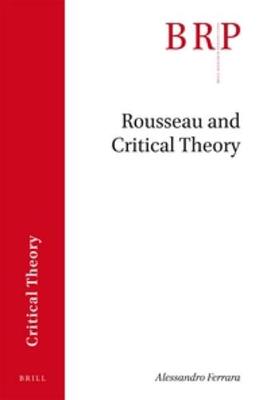Brill Research Perspectives
1 total work
In Rousseau and Critical Theory, Alessandro Ferrara argues that among the modern philosophers who have shaped the world we inhabit, Rousseau is the one to whom we owe the idea that identity can be a source of normativity (moral and political) and that an identity's potential for playing such a role rests on its capacity for being authentic. This normative idea of authenticity brings unity to Rousseau's reflections on the negative effects of the social order, on the just political order, on education, and more generally, on ethics. It is also shown to contain important teachings for contemporary Critical Theory, contemporary views of self-constitution (Korsgaard, Frankfurt and Larmore), and contemporary political philosophy.
